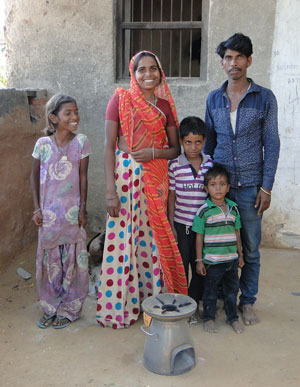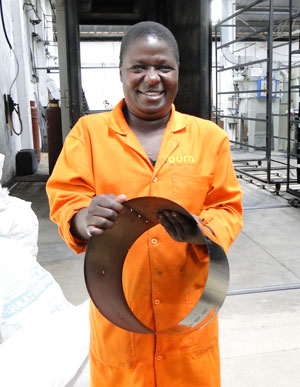Partner Spotlight: International Center for Research on Women
At the International Center for Research on Women (ICRW), we work to empower women, advance gender equality, and fight poverty in the developing world. To do so, we work with partners like the Alliance to conduct research, build capacity, and advocate for evidence-based ways to change policies and programs.
Thanks in large part to the Alliance and its network of partners, it is increasingly recognized that reduced emissions from clean cooking solutions contribute significantly to improved human and environmental health. But what about the gender dynamics of these health impacts? Women are often the ones hardest hit by the lack of access to clean cookstoves and fuels. They experience high rates of exposure to household air pollution from cooking over open fires. And what about the social and economic impacts of clean cooking solutions, particularly for women and girls? These are less frequently mentioned, but equally important. Due to their role in fuel collection and cooking, women experience large unpaid work burdens as they spend hours each day on the labor-intensive tasks of collecting fuel and cooking over an open flame. Their safety can also be compromised both from using unsafe stoves and from the insecure environments in which they collect fuel. ICRW and the Alliance saw these challenges as an opportunity to work together to ensure that access to energy is part of the global gender agenda.

So far we’ve seen that women can catalyze the clean cooking market when they are engaged as designers, producers, distributors, and after-sales service providers. Not to mention the benefits derived from using clean or efficient cooking technologies – improved health, reduced fuel use and cost, less air pollution, and reduced time spent collecting fuel and cooking. Just this month, Melinda Gates, Co-Chair and Trustee of the Bill & Melinda Gates Foundation, wrote about the “super power” quality of freeing women’s time spent on unpaid work such as cooking (Gates Foundation Annual Letter). Developing a concrete evidence base around this issue and elevating it to the forefront of the global development conversation is exactly what the ICRW-Alliance partnership aims to do.

ICRW worked directly with clean cooking enterprises to test mechanisms for gathering and using this information in conjunction with the Alliance. Researchers traveled to Uganda, Kenya, and India to work with four partners (EcoZoom, GVEP, Wana Energy Solutions, and BioLite) to test the effectiveness of social impact surveys with customers, employees/entrepreneurs, and enterprises. These tools are currently in draft form and will be finalized and available to all Alliance partners at www.cleancookstoves.org in the coming months.
This type of measurement across diverse countries will also allow the Alliance to aggregate social impact data from around the world in order to tell a story about how clean cooking and fuel initiatives are creating social impact across different contexts and settings.
For more information on the Alliance and ICRW’s social impact M&E framework, see: Alliance Seeks Input on Social Impact M&E Framework
